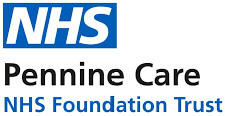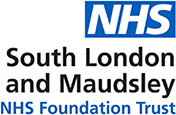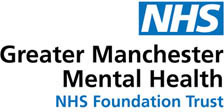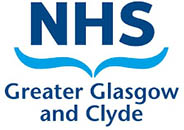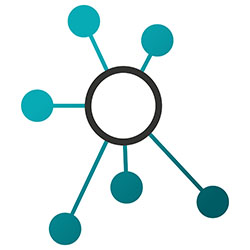CONNECT is a study using digital technology to see if we can detect in advance if someone’s mental health might be getting worse.
People who experience psychosis can encounter changes in their activity levels, sleep pattern and getting out and about just before they become unwell or experience a relapse.
 For example, someone who is feeling very anxious or low might not feel like socialising much. They might stay at home more than usual, phone their friends less, sleep less and experience other changes.
For example, someone who is feeling very anxious or low might not feel like socialising much. They might stay at home more than usual, phone their friends less, sleep less and experience other changes.
In CONNECT, we want to see how changes in behaviours and patterns might relate to someone’s mental health getting worse.
In the future, it might be possible to tell in advance when someone’s mental health might be getting better or worse by looking at these changes and offering extra support at the time it is needed.
About the study
People from all walks of life can experience psychosis. Psychosis can involve a range of experiences such as hearing voices, feeling suspicious around others, or having confused thinking. Sometimes, these experiences can become distressing and get in the way of living a fulfilling life.
In the CONNECT study, we aim to see how changes in activity levels, thoughts, feelings, and behaviours might relate to someone’s mental health getting better or worse.
How it works
Participants in the study will use a smartphone and a wearable device (like a Fitbit or smartwatch) and download the CONNECT app.
Through the app, we will ask people to answer a short set of questions a few times a week about their thoughts and feelings.
We will also collect information automatically (without participants needing to do anything) using sensors which are built into all modern smartphones and the wearable device. This information will be about things like a person’s general movements, sleep and activity levels.
From this information, we will be able to work out if changes in sleep or activity levels, for example, might be a sign of someone becoming unwell.
In the future, it might be possible to tell in advance when someone’s mental health might be getting worse by looking at this type of information and offering extra support to help keep people safe and well, at the time it is needed.
The CONNECT study is funded by The Wellcome Trust and is taking place across six UK sites. We have partnered with charity The McPin Foundation to involve people with lived experience of psychosis throughout the study.
Information for participants
You can take part in this study if you are 16 or over, use NHS mental health services in one of our recruiting sites, receive or have received treatment for psychosis in the last two years, and are English-speaking.
- We will ask you to answer a short set of questions a few times a week about your thoughts, feelings, environment and activities (this will only take a few minutes to complete) using the CONNECT app.
- You will use a wearable device such as a fitness tracker or smartwatch) that you will wear on your wrist
- Carry your smartphone and wear the wearable device for 12 months
- If you don’t have a smartphone or wearable device, we will provide them
- Automatically collect information using sensors on smartphones and the wearable device
- Information collected includes general movement, sleep, and activity levels
- No collection of information that directly identifies you or your location
- No access to the content of texts, phone messages, or emails
- Meet with a researcher (phone, online, or in person) over 12 months to discuss progress
- Provide feedback on your experience participating in the study
Benefits of taking part
- Contribute to the development of new knowledge which could help people who experience psychosis in the future.
- At the end of taking part in the 12-month study, you will be able to keep the smartphone and wearable device (if you asked for one to use during the study).
- We will also pay for your data network costs for the time you are using the CONNECT app, and for attending research assessments over the 12 months. You will also be reimbursed for any reasonable travel to and from research appointments.
- At the end of the study, we will give you a summary of your information and an opportunity to talk about it with the research team.
- Learning more about how sleep, thoughts and feelings, behaviours and phone usage relate to your mood and symptoms could give you important insights into staying well.

Learning from lived experience
We are putting people with lived experience of psychosis at the heart of the CONNECT study. We value expertise based upon experience and recognise how this can transform mental health research.
The involvement of people with lived experience in the CONNECT study is supported by a charity called the McPin Foundation.
The McPin Foundation specialises in involving people with lived experience of mental health issues. The charity supports a range of research studies across the UK. These include many studies focusing on people with psychosis.
The McPin Foundation also employs staff with lived experience of mental health issues who act as researchers in the studies that it supports.
Public involvement in the CONNECT study
Involvement in the study is supported in three ways:
- We have a group of service users and carers called a Lived Experience Advisory Panel or LEAP. This group is made up of people from each of the places in the country where the study is taking place. The LEAP meets regularly and will continue to do so for the duration of the study.
- We have an Involvement Network of people with lived experience who live anywhere in the country. Members of the Network get involved on a more informal ‘as and when needed’ basis with the study.
- People with lived experience are involved in the actual running and management of the study.
In the future, if people live near a place where the study is taking place, we hope to support people to be involved more locally with the study.
What does the McPin Foundation do on the study?
We use our lived experience to make the study as good as it can be. We have helped to design the study, to influence the way it is conducted, and to produce the documents that participants will receive when taking part in the study.
Some of the specific activities that we have carried out or will be supporting over the coming years include:
- study recruitment materials
- study newsletter
- materials for interviews
- looking at study documents such as the study protocol
- developing and testing the study app
- addressing any ethical or other considerations, such as privacy and safety
- study website
- dissemination of findings
- and much more.
Who is supporting the study from the McPin Foundation?
The CONNECT study is supported by Alex Kenny and Annabel Walsh. You can read more about us on the research team page or the McPin website.
As the study gets underway, staff from each of the places where the study is taking place will be supporting local involvement as well.
How can I get involved in public involvement on the project?
To get involved or to contact us, please email Alex Kenny (alexkenny@mcpin.org) or Annabel Walsh (annabelwalsh@mcpin.org).
Research team
The CONNECT research team is based at six different universities across the UK and supported by the McPin Foundation. Find out more about the people working on the study at each site.

Newsletters
Explore the latest updates from the CONNECT study in our newsletters.

Contact us
Find contact details for each site involved in the study.
The University of Manchester
Email: CONNECTDigitalStudy@manchester.ac.uk
University of Edinburgh
Email: CONNECT-Study@ed.ac.uk
King’s College London
Email: connectstudy@kcl.ac.uk
University of Sussex
Email: ConnectDigitalStudy@spft.nhs.uk
University of Glasgow
Email: ggc.connect@ggc.scot.nhs.uk
Cardiff University
Email: CardiffCONNECTDigitalStudy@cardiff.ac.uk








